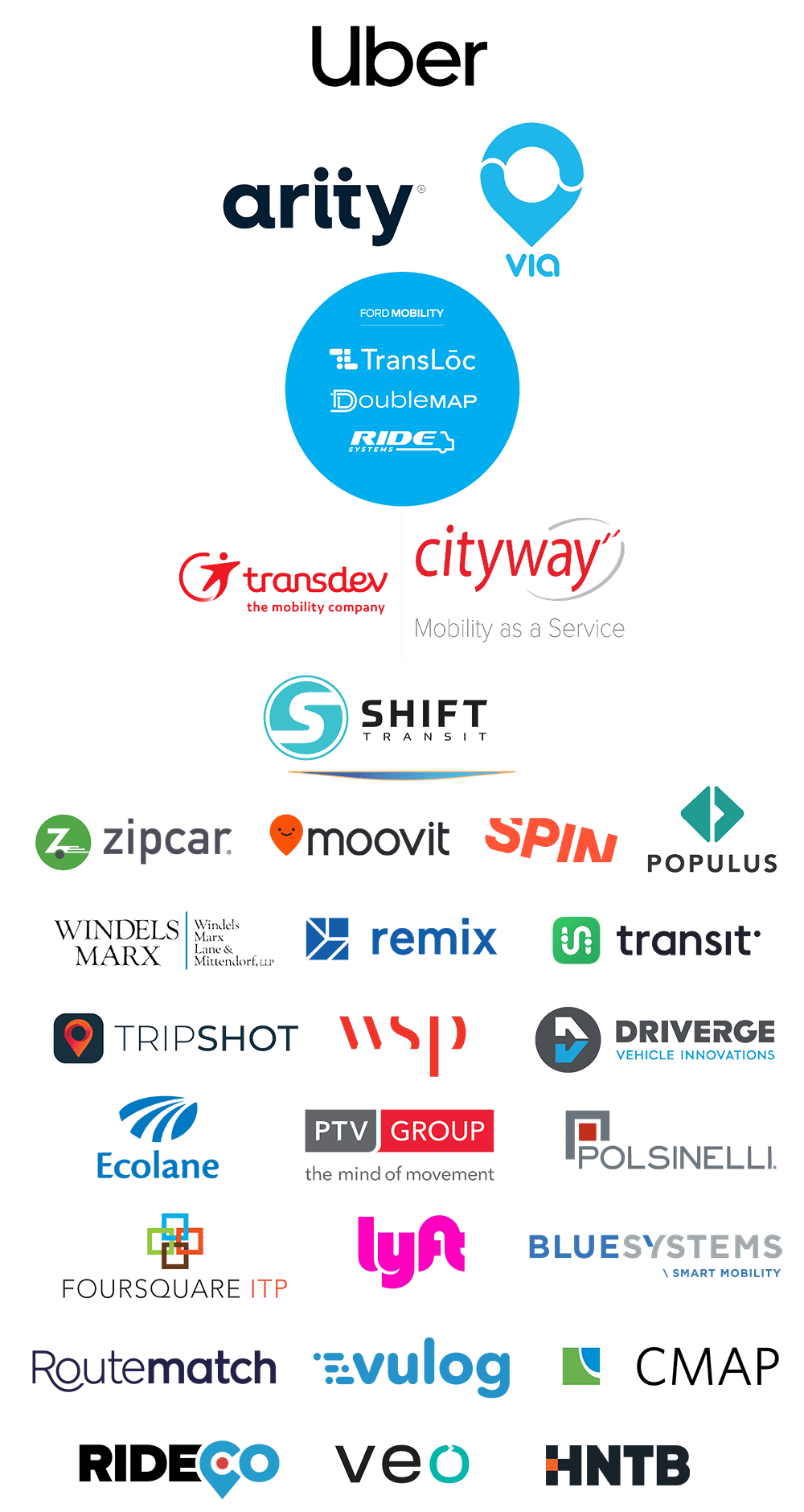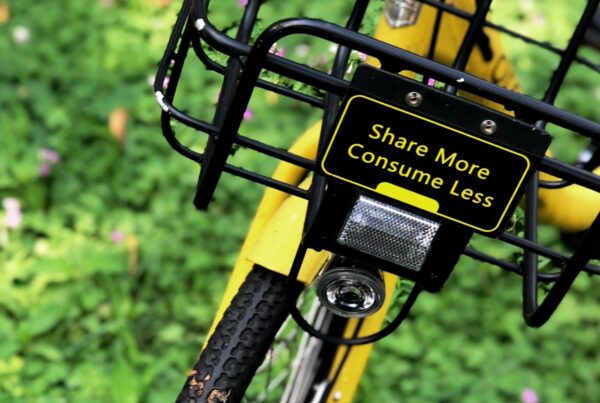Welcome to the Shared-Use Mobility Center’s weekly guide to the most impactful news, thought-provoking articles and innovative technologies that are shaping our transportation future. We believe in sharing information, just like sharing cars, bikes, and scooters, so if there’s anything additional you’d like to see, just drop us a line.
Announcements
REGISTER NOW FOR THE VIRTUAL SUMMIT!
![]()
 Now is the time to virtually come together and address how accessible, equitable, and environmentally sound mobility can overcome today’s challenges and work for everyone.
Now is the time to virtually come together and address how accessible, equitable, and environmentally sound mobility can overcome today’s challenges and work for everyone.
- Plenary sessions with the same or similar caliber of public and private-sector speakers
- Two days of interactive panels (8-10) on cutting-edge shared mobility topics
- Focused breakout groups following sessions and one-on-one opportunities with thought leaders
- A virtual Startup Spotlight competition with presentations, voting, and a finale event
- A virtual Expo featuring the latest technology and products, live booth, and a virtual test track
- Networking and social hours with participants and attendees
- Fully recorded for any missed sessions and for repeat viewing
Confirmed panels include:
- The Road to Mobility as a Service: Data Sharing (MaaS pt. 1)
- Shared TNCs: Lessons Learned and Looking Forward
- Shared Mobility, Freight, and Goods Delivery
- Technology and the Coordination of Paratransit and Human Services Transportation
- Transit Innovation in Challenging Times
- State-level Environmental Policy
- The Road to Mobility as a Service: Payment (MaaS pt. 2)
- Rural and Tribal Shared Mobility
- More coming!
If you’re already registered for the in-person summit that was scheduled for March 17-19, you’re all set. If not, you can register here. Interested in sponsorship? Reach out to [email protected].
Moving Forward from COVID-19
We are excited to announce that we will be providing technical assistance toward the successful implementation of 25 transit projects selected by the Federal Transit Administration (FTA) for the Integrated Mobility Innovation (IMI) program. The IMI grantees, which will be awarded approximately $20.3 million, will execute innovative mobility solutions in urban, suburban, and rural areas that focus on on-demand transportation, transit automation, and multimodal payment integration.
Vince Valdes, Associate Administrator for Research, Demonstration and Innovation at the FTA, expressed his enthusiasm about the collaboration, saying “FTA is excited to continue our collaboration with the Shared-Use Mobility Center, which will support our grantees as well as the broader transit industry as they seek to improve mobility through innovative partnerships, technology, and service models.”
Valdes also spoke at last week’s virtual plenary session, The Future of Multimodal Systems, where he talked about the IMI program and transit funding during the COVID-19 crisis.
“We are honored and delighted to be providing assistance to the program,” says SUMC Executive Director, Sharon Feigon. “They deserve praise for their commitment to new mobility solutions and partnerships during this difficult time.”
Ridehailing/Carsharing/Carpooling
In surprisingly positive economic news, ridehailing company Via has doubled its valuation to the tune of $2.25 billion. While the company, like Uber and Lyft, has temporarily halted its shared service, it also develops and sells software to public transit agencies to help them implement on-demand routes—a very smart setup for sure.
Many industries are working around the clock to combat the COVID-19 pandemic as essential workers’ safety is under scrutiny. CityLab makes the case for ridehail drivers to be considered frontline workers too.
Vehicle rental giant Enterprise is suspending its carshare service, which operates in the US, Canada, and the UK, in efforts to limit the spread of the coronavirus.
Uber will be giving out 200,000 free rides and 100,000 free meals to National Health Service and Health and Social Care staff in the UK during the pandemic lockdown.
Partnerships and Programs
The Trump administration, aided by the EPA, is set to make a consequential rollback on emissions standards for motor vehicles that will dramatically increase carbon emissions in the US. This decision will bring irreparable damage to our environment and air quality, and nullify sustainability measures needed to fight climate change.
Viavan and Berlin transport agency BVG are shifting the focus of their on-demand shared ride service to make it an essential lifeline free for healthcare workers during the coronavirus crisis.
Nevada’s Regional Transportation Commission, in partnership with community food bank Three Square, has expanded its Silver STAR door-to-door, flexible transit service to offer grocery deliveries to homebound seniors in response to COVID-19
NACTO and Bloomberg Philanthropies have launched a new platform, the Transportation Response Center, that gives city officials, leaders, and others real-time information about the latest transportation strategies that cities are deploying in response to the rapidly evolving pandemic.
Bikesharing and Micromobility
After pausing their service due to COVID-19, Micromobility company Wheels has released a scooter/e-bike hybrid tailored for gig-and-delivery workers with brake levers and self-cleaning handlebars using technology from NanoSeptic.
A new program is giving 20 Gocycle e-bikes to health workers from the National Health Service in London to promote social distancing during the coronavirus crisis.
With Bird laying off about 3% of its staff due to the crisis and a wave of micromobility service shutdowns, the long-term stability of many dockless mobility companies is called into question.
In our new quarantined world, cities are shutting various types of transportation services to fight the spread of COVID-19. Case in point: Cincinnati is indefinitely halting Red Bike bikeshare operations and Norfolk’s Pace is doing the same as a safety precaution.
Transit
If you have fewer transit riders, you need fewer transit trips, right? Tell that to the essential workers who depend on the service every day, many of whom are from low-income communities.
For those in San Francisco: all Muni Metro and light rail services in the city will be temporarily shut down and replaced with local buses in response to the pandemic outbreak.
Stay up to speed on all of the local DC-region transit service cuts and updates through this District-specific public transportation tracker on the WAMU 88.5 site.
On a positive note, Denton County Transportation Authority in Texas is expanding its on-demand microtransit service area “in the effort to align itself with government-mandated social distancing”.
Technology
MIT’s Computer Science and Artificial Intelligence Laboratory, in conjunction with the Toyota Research Institute, is working with a virtual autonomous vehicle platform that uses real-world data to create “viewpoints from trajectories a car could take” while rewarding virtual cars the longer they travel without crashing.
The on-going rise of electric vehicle development around the world has pushed the envelope for sustainable transportation among many sectors, and now utility companies are working with EV fleet managers to make sure the energy grid can not only handle this increase in demand, but also utilize EVs for better energy management.
The International Association of Public Transport (UITP) launched a new European data standards program to facilitate the exchange of models and travel information among service providers to create more seamless and door-to-door multimodal options.
Wireless EV tech developer ElectReon completed a groundbreaking test of wirelessly charging a 40-ton electric semi-truck in Gotland, Sweden on a specialized electric road.
Urban Sustainability
From borrowing adaptation tactics during the ongoing pandemic to sharing solutions that make transportation more efficient and clean, Asian countries rely heavily on learning from one another and building on those solutions. Why does the Anglosphere (more specifically the US), feel so reluctant to look East for lessons learned?
How can old school buses be used even post-mortem? A junkyard near Atlanta has fostered a vibrant art space and community for the public by using them as open murals for local artists.
Getting cars off low-traffic streets in New York (and other cities, really) and focusing on making roadways more accessible to pedestrians, cyclists, and other micromobility devices could help build a network of ‘quiet streets’ that would make them less congested and polluted (air and sound) while being safer.
COVID-19 is undoubtedly leading to a major economic crunch that could bring about a recession, but we have a tool that can help get the US on the right track after this health crisis: infrastructure. Fixing our aging infrastructure while prioritizing new projects to add value to communities could be the key, according to the World Economic Forum.
Requests for Proposals, Inquiries, and Information
RFP: Management, Operation and Maintenance of Nassau County’s Fixed Route and Paratransit Services
Nassau County, NY
Deadline: April 17, 2020
RFP: Intelligent Transportation Systems
Missoula Urban Transportation District (Mountain Line)
Missoula, MO
Deadline: April 24, 2020
RFP: Paratransit Demand Response Services
Ann Arbor Area Transportation Authority Proposal # 2020-15
Deadline: April 30, 2020
We’d like to thank the following sponsors for their support of the 2020 National Shared Mobility Summit.
 Did someone forward this to you? You can sign up for our newsletter here.
Did someone forward this to you? You can sign up for our newsletter here.



